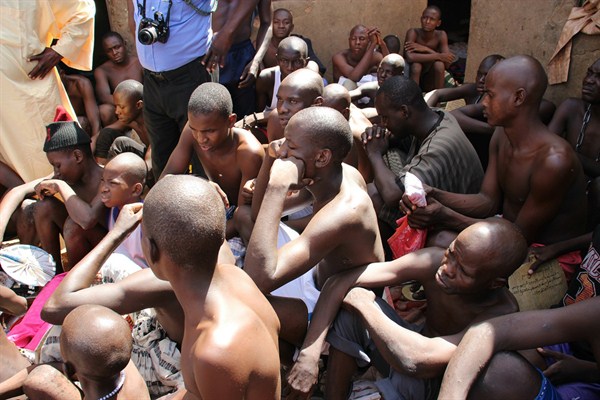Editor’s Note: This article is part of an ongoing series about education policy in various countries around the world.
In a raid last month in Katsina, the capital of Katsina state in northern Nigeria, police freed 67 men and boys from what news reports called an “Islamic school.” The captives, who ranged in age from 7 to 40 years old, had been held in degrading conditions that included being shackled at the feet and suffering regular beatings and abuse. Hundreds more had escaped from the center in the weeks preceding the raid. In September, a police raid in neighboring Kaduna state had freed hundreds of inmates from similar conditions. Coming in such quick succession, the raids drew international attention to the schools and led Nigerian President Muhammadu Buhari to order them closed.
But in an email interview, Hannah Hoechner, a lecturer in education and international development at the University of East Anglia, and Sadisu Salisu Idris, an almajiri—or full-time student of a Quranic school—and community activist in Nigeria, explain why news reports calling the raided centers “Islamic schools” are misleading, and why the government’s response is inadequate.

